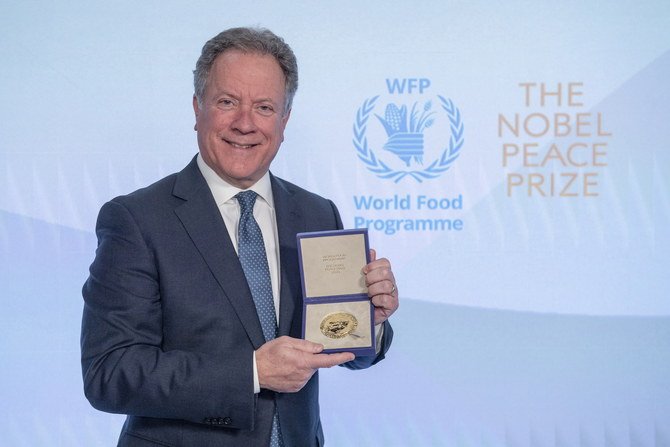
- ARAB NEWS
- 04 Jul 2025

When the Nobel Peace Prize was awarded in October to the World Food Programme (WFP), its executive director David Beasley said 270 million people would face hunger by the end of this year, and the organization needed to raise $15 billion to feed them plus $5 billion to save 30 million more from starvation.
Beasley used his acceptance speech last week as a further call to action. The COVID-19 pandemic is not just the biggest health crisis in a century, it has also created economic devastation across the globe and doubled the number of the world’s hungry.
According to the WFP about 370 million children missed school meals in May at the height of the pandemic. The Asian Development Bank and the International Labour Organization say 15 million teenagers and young people have lost their jobs and incomes in Asia alone.
Beasley pointed out that before COVID-19, 60 percent of hunger was conflict driven, which is why 80 percent of WFP operations are in conflict zones, many of them in Africa and the Middle East. Nearly all of the 30 million who now face starvation live in conflict zones. Climate change and extreme weather events are another major cause of hunger by devastating crops and breaking food supply chains.
The WFP’s job goes beyond feeding the hungry and extends into securing food supply chains as a means of averting hunger in future. It is also the world’s largest provider of school meals.
The COVID-19 pandemic is not just the biggest health crisis in a century, it has also created economic devastation across the globe and doubled the number of the world’s hungry.
Cornelia Meyer
The WFP fed close to 100 million hungry mouths before the pandemic, when 135 million people did not have enough to eat. Now that the number has doubled, its task has more than doubled.
Beasley pointed out the link between hunger and migration: “If they don’t have food security and some degree of peace, they will do what any mother and dad would do to find food and peace for their children: They’ll leave.”
If anything, that should be a rallying cry for the near neighbors of conflict zones to support the WFP. It raised a record $8 billion in 2019, but a gap of $4.1 billion remained —at a time when the world economy was humming, making generosity a lot easier. Now the IMF expects global GDP to contract by 4.4 percent in 2020, with the WFP’s biggest donors the US and Germany ($3.4 billion and $887 million respectively) not escaping the economic downturn. The US and the EU alone have earmarked trillions in pandemic rescue packages for their own people, leaving little wiggle room in their hopelessly stretched budgets. Raising the $15 billion required to feed the world’s hungry will be an uphill battle.
Nevertheless, in Beasley’s words: “There is $400 trillion of wealth in the world today. Even at the height of the pandemic, in just 90 days, an additional $2.7 trillion of wealth was created. And we need only $5 billion to save 30 million lives from famine.” If half the world’s population donated $1 each and all 2,095 billionaires donated $1 million per person, the WFP would have raised $6 billion.
Humanity has achieved a lot in the past 200 years; 94 percent of the world’s population lived in extreme poverty at the beginning of the 19th century, but by 2015 that had been reduced to 10 percent. COVID-19 threatens to reverse this achievement. The World Bank estimates that up to 115 million people will be pushed into absolute poverty because of the economic devastation caused by the pandemic. The UN’s Sustainable Development Goals, which have been endorsed by the family of nations, address these issues: SDG 1 is for zero poverty by 2030 and SDG 2 is to eliminate hunger by then.
Beasley ended his acceptance speech with the words: “Please don’t ask us to choose who lives and who dies. In the spirit of Alfred Nobel, as inscribed on this medal – “peace and brotherhood” – let’s feed them all.” Hear, hear.